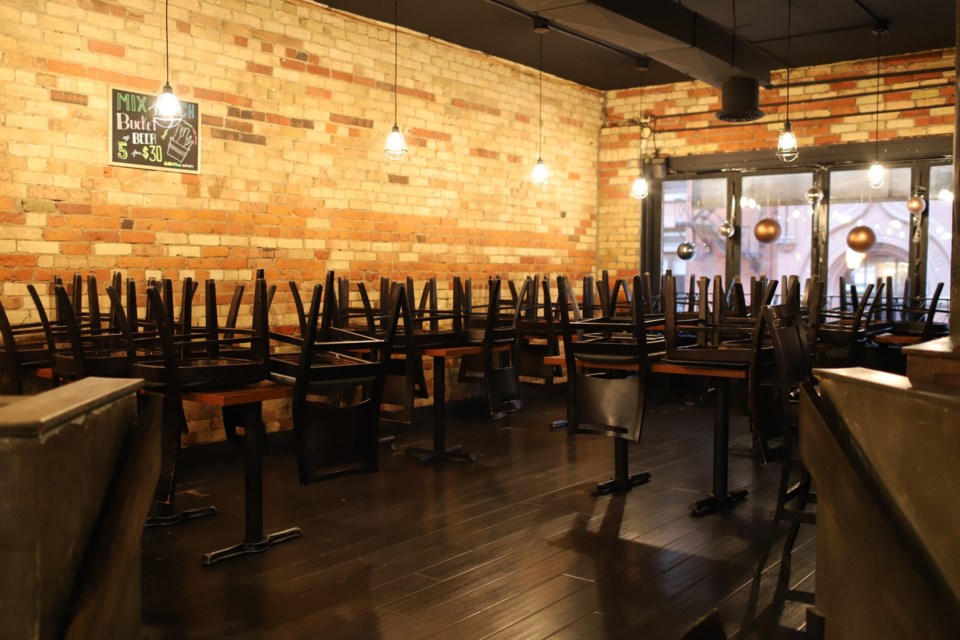The B.C. government’s economic aid to struggling businesses during the pandemic continues to be a day late and a buck short - or, in the case of restaurants, 10 days late and $50 million short.
That’s how long it took for the province to unveil an economic aid package to restaurants that contained a total of zero new dollars in assistance.
There’s not much good to say about the new “Circuit Breaker Business Relief Grant” program, other than it was created in less than a week and a half - which, by government bureaucracy standards, is like hitting warp 10 and blowing a hole through the fabric of space-time.
First, this is not new money.
The $50 million aid package is funding pulled away from the troubled Small Business Recovery Grant program, where government has been struggling to give away free cash to businesses since September due to a stifling amount of red tape, bureaucracy and rules.
It’s clear now that the $300 million small business grant program will never truly work as intended; as of Thursday, after almost seven months, only $110 million had actually been awarded to businesses.
So, the province is going to start chipping away, by reallocating the money elsewhere.
This new circuit breaker restaurant fund will have a “streamlined” application process, according to the province. That’s about as close as Economic Recovery Minister Ravi Kahlon would get Thursday to admitting the small business grant program is a failure.
“It takes considerable time to go through the process in government (of creating a new program) and we wanted to act fast,” he said. “The fastest way was to use the dollars already approved on the books.”
Government is doing its best to pivot with a “flexible and nimble” response, added Kahlon.
But it also comes at the expense of other small businesses that have been begging for access to the small business grant but instead drowned in paperwork by provincial bureaucrats. Government takes with one hand from the problem pile of funding, and moves $50 million with its other hand to a brand new pile.
The new program also only offers a very small amount of money per business. While the grant tops out at $10,000 (based on a business with more than 100 employees), most restaurants will see only $5,000, according to government.
That’s barely enough to cover the cost of perishable food restaurants purchased Monday before they were hit with the indoor dining ban, now going to waste.
It’s also not enough to cover rent and utilities, while also continuing to pay staff.
“Many businesses I’ve spoken to will use these dollars to keep more of their employees,” said Kahlon. “That’s why we built flexibility into the program.”
But it’s not hard to imagine a restaurant burning through a $5,000 grant in mere days, depending on payroll.
The aid package also failed to offer anything to displaced restaurant workers, thousands of whom saw their jobs disappear last Monday with the closure of in-person dining. When B.C. enacted similar measures last spring due to COVID-19, more than 110,000 of the 180,000 people employed in the restaurant sector lost work.
Yet the circuit breaker recovery fund offers nothing to help those workers. Their only recourse is to go on federal Employment Insurance.
B.C. could have dug deep and helped cover some payroll costs for businesses to continue to pay staff during the closure. Instead, it just ignored the issue and fobbed more than 100,000 struggling workers off to Ottawa.
“What a slap in the face of restaurants and other businesses impacted,” said BC Liberal critic Todd Stone. “While small businesses have laid off staff, absorbed huge sunk costs and many have closed their doors, the NDP offer no new money to help businesses other than repurposing funds from a botched business grant program.”
It’s a disappointing result for restaurants. Their only hope is that the next provincial budget, set for April 20, has more aid to offer.
Rob Shaw has spent more than 13 years covering BC politics, now reporting for CHEK News and writing for The Orca. He is the co-author of the national best-selling book A Matter of Confidence, and a regular guest on CBC Radio.
SWIM ON:
- Rob Shaw last wrote that in getting the former premier and several ministers to take the stand at the Cullen Commission, the NDP may already have what it wants – regardless of what’s actually said.
- Restaurants face a great reset thanks to COVID-19, says industry expert Sylvain Charlebois.
- Jody Vance remembers being a young, stretched-for-cash server - and knows there just isn't much leeway. Rather than blaming them, the province should extend a hand.



